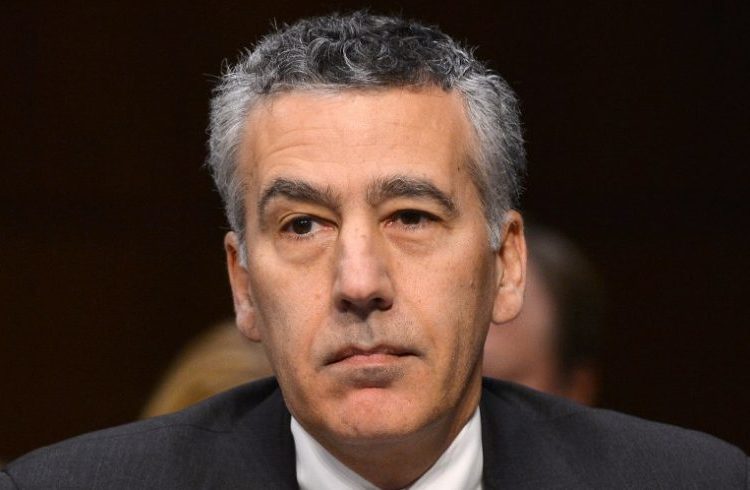President Donald Trump’s government named Philip Goldberg to head the U.S. Embassy in Cuba, according to sources linked to the topic.
A career diplomat, Goldberg has a long experience in several countries and was described this Monday by a U.S. Congress advisor as “professional and the best of the best.”
A U.S. official who requested anonymity, cited by AP news agency, said that Goldberg will act as chargé d’affaires in Havana, the highest diplomatic post of the missions in the countries in which the United States doesn’t have an ambassador.
The Senate has not confirmed an ambassador to Cuba since the reestablishment of diplomatic relations in 2015.
Ever since the opening of the Embassy in Havana, the post of chargé d’affaires on the island was held by Jeffrey DeLaurentis, who was named ambassador by Barack Obama but did not get the necessary backing from Congress.
DeLaurentis remained in the post until July of this year, when Scott Hamilton replaced him as acting chargé d’affaires.
Philip Goldberg’s appointment until now has not been confirmed by the Department of State, which, according to AP, “declined making comments” in relation to this. Neither has this been reported on the profiles on the social media of the U.S. Embassy in Havana.
But the news has been declared true by several sources and media, according to which it will be made official in the next days.
Controversial appointment
If true, Goldberg’s appointment could be controversial in Havana, since in 2008 the new chargé d’affaires was expelled from Bolivia, Cuba’s ally in South America, accused by President Evo Mprales of promoting social unrest.
“Appointing Goldberg to head the U.S. Embassy in Cuba is rather provocative,” said William LeoGrande, a professor of government in the American University and an expert on Cuba.
“But Goldberg is a foreign service professional and skillfully represents the policies of the Trump government. Time will tell if he has been ordered to continue his predecessor’s steps…or to carry out a more hostile policy,” he added.
If approved by Cuba, Goldberg – who was ambassador in the Philippines during the Obama administration – will arrive at a moment of great tension between Washington and Havana.
The U.S. Embassy on the island was reopened last year for the first time since 1961, as part of the rapprochement between the two countries since December 2014.
But after Donald Trump came to power, bilateral relations have again “cooled.”
Trump accused Havana of being responsible for the alleged acoustic attacks that, according to Washington, affected the health of at least 22 U.S. diplomats in Cuba. The Cuban government has rejected the accusations and has placed in doubt the veracity of the incidents.
Rhodes: Trump won’t be able to completely reverse the Cuba policy
However, in October the U.S. government withdrew 60 percent of its officials in Havana, suspended almost all processing of visas for Cuban citizens and expelled 15 Cuban diplomats from Washington.
New measures which restrict the visits and businesses by U.S. citizens and companies on the island recently took effect.
This is the scenario of Goldberg’s possible arrival to Havana, who, because he does not officially hold the post of ambassador, doesn’t need to be approved by the U.S. Congress.
Reuters / AP / OnCuba








